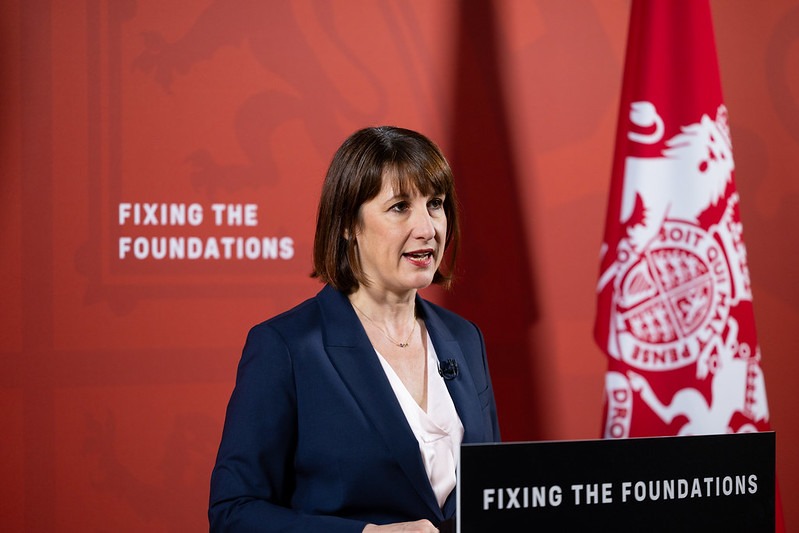Chancellor Rachel Reeves announces spending cuts amid £22bn ‘black hole’
Chancellor Rachel Reeves has announced a series of cuts to public spending in response to a roughly £22 billion ‘black hole’ she argued was created by the previous Conservative government. In an address to the House of Commons on 29 July, Reeves accused the Conservatives of withholding information on the state of the public finances, claiming there had been a party-wide cover-up and calling them “deluded, out of touch, and grossly irresponsible”.
Reeves’ predecessor and Shadow Chancellor, Jeremy Hunt, hit back. He criticised Reeves for politicising the situation and claimed that Labour had always been fully aware of the state of the public finances, stating: “I think it’s inconceivable that the pressures on public finances weren’t shared.”
The most controversial cuts involve the Winter Fuel Payment: a cash benefit aiming to help pensioners with their heating bills. Reeves’ decision to means-test these payments will cut the number of pensioners eligible for fuel payments from 11.4 million to 1.5 million. This has faced significant backlash from charities, who argue that the government is taking money away from the most vulnerable. Suggestions have arisen about a generational shift in politics – as a party more popular with younger voters, Labour is cutting back on policies for the old.
An article in The Spectator discussed a millionaire who would ‘buy a bottle of vintage wine with his Winter Fuel Payment’ to show the absurdity of the current policy
Emerging discussions show that winter fuel payments have been squandered by wealthy pensioners who are in no need of government aid. Recent ONS data shows that ¼ of pensioners live in millionaire households, with an article in The Spectator discussing a millionaire who would “buy a bottle of vintage wine with his Winter Fuel Payment” to show the absurdity of the current policy.
Besides reforming the Winter Fuel Payment, Reeves is also cancelling proposed social care reforms. Initiated by Andrew Dilnot, the Dilnot reforms (proposed by the independent Commission on Funding of Care and Support) were designed to create a sustainable and long-term plan for the social care system. They included limits on care expenses, automatic financial support for individuals with disabilities from birth, and extra funding for the care sector ranging from £1.1 billion to £2.2 billion. Since 2010, Dilnot has been consistently urging governments to address the problems with the social care system by implementing these recommendations.
A pause to the New Hospital Programme (NHP), alongside the cancellation of capital projects like the Stonehenge tunnel, is also in the pipeline. In 2020, then Prime Minister Boris Johnson proposed the NHP, as part of which 40 new hospitals would be built by 2030. The construction of only one hospital under this initiative thus far demonstrates that, like the Dilnot reforms, this target has also been left unfulfilled. The cancellation of the Stonehenge tunnel has prompted criticism from the Leader of Wiltshire Council, who said he was “extremely dismayed and disappointed”.
The timing of the announcement was controversial. Alongside Hunt’s many other criticisms, he pointed out that these cuts coincide with a planned 22.3% pay rise over two years for junior doctors – an amount well above inflation. Reeves has responded, telling Times Radio that this only costs the government £350 million, compared to the £1.7 billion incurred due to industrial action last year.
The Institute for Fiscal Studies (IFS), a UK think tank, anticipated these cuts long in advance, as outlined in a Sunday Times article published on 24 June. In the article, IFS Director Paul Johnson forewarns of future cuts to spending and tax rises due to “unfunded” commitments by the Conservatives and “trivial” spending promises by Labour. Johnson argues that while both parties seem keen to evade responsibility for the state of government finances, neither party would have been able to avoid making cuts in the absence of significantly higher taxes or borrowing.
Reeves has confirmed that Labour’s first budget, to be announced on 30 October, will involve tax rises
In the week since the announcement, Reeves has confirmed that Labour’s first budget, to be announced on 30 October, will involve tax rises, doing so in an interview on The News Agents podcast. While she did not specify which taxes would be affected, she ruled out rises to National Insurance, VAT, and Income Tax – echoing the pledges she made during the election campaign.
Reeves’ plans will disappoint much of the public, especially the pauses to hospital-building. In her speech to the Commons, Reeves seemed equally frustrated: “Let me be clear, this is not a decision I wanted to make, nor is it the one that I expected to make, but these are the necessary and urgent decisions that I must make.”
In the lead-up to the budget, there will be much speculation about how Labour will deliver this message. Will they continue to place the blame on the previous government, and if so, how much more scapegoating of the Tories will the public tolerate?

Comments